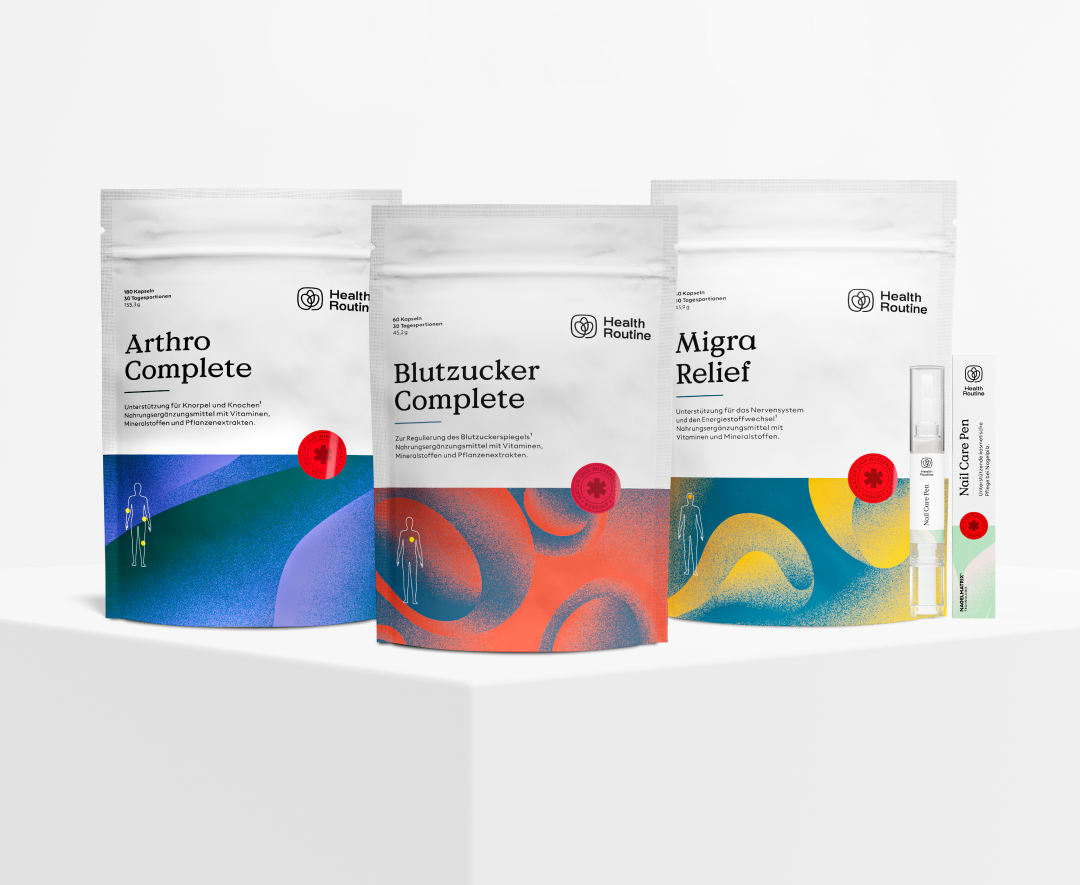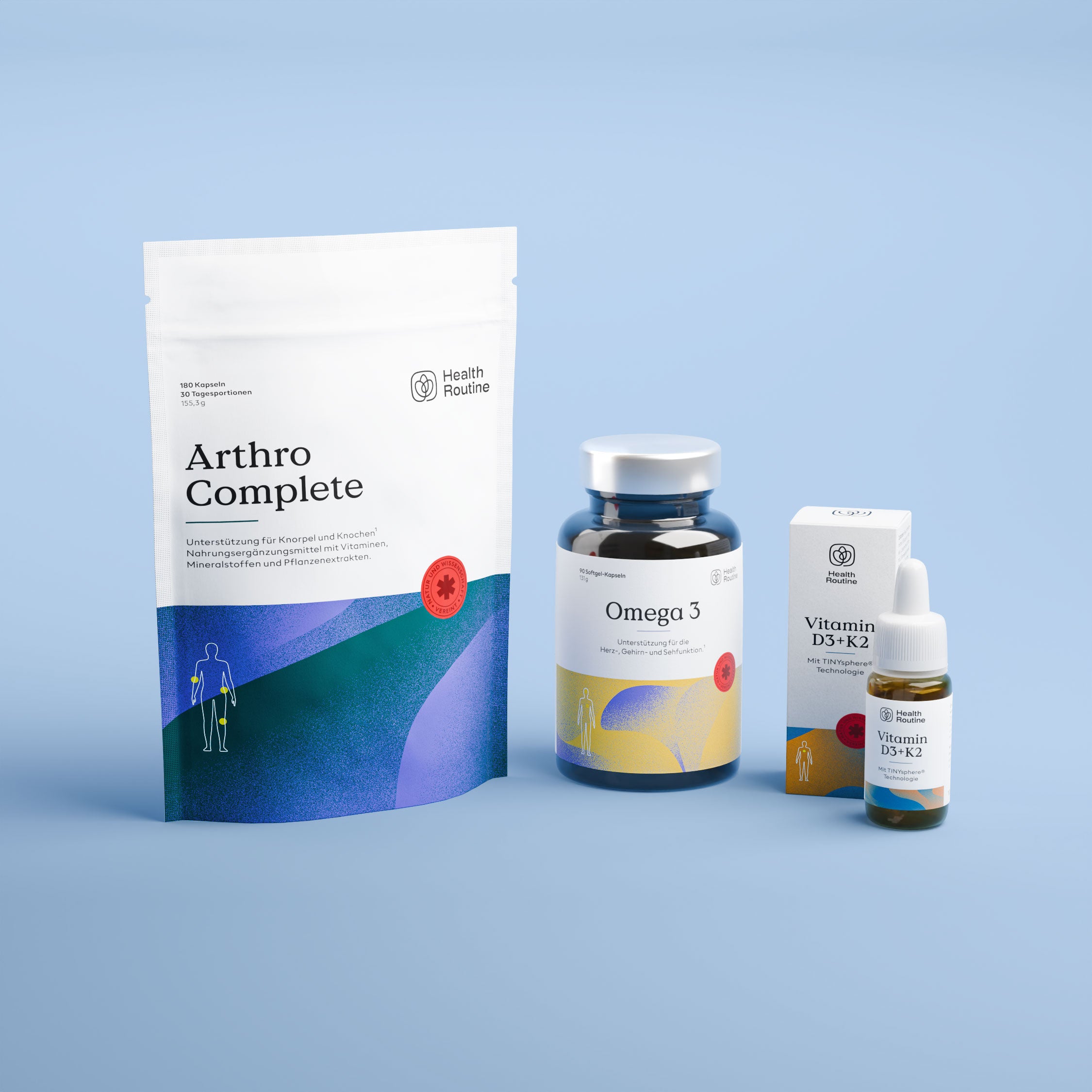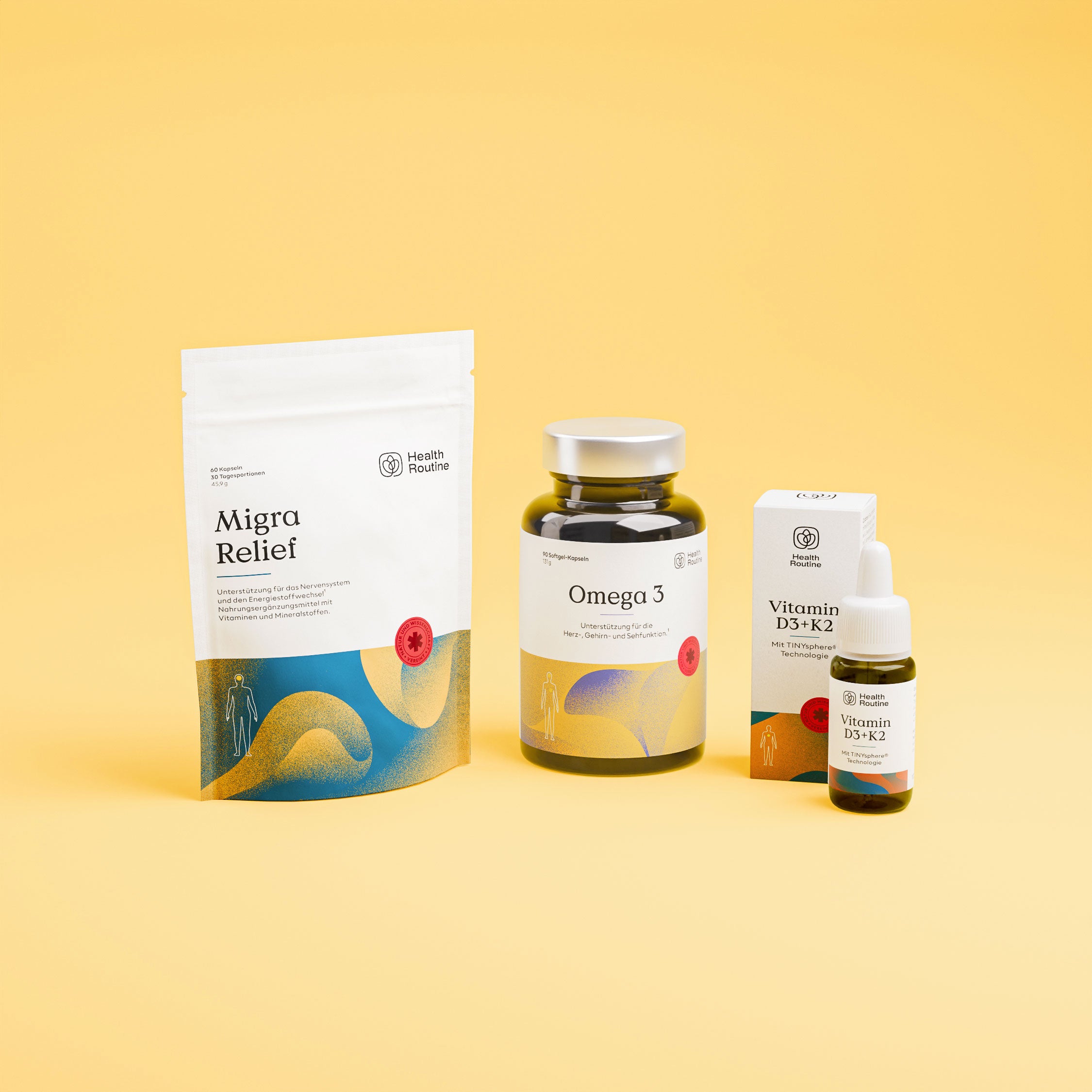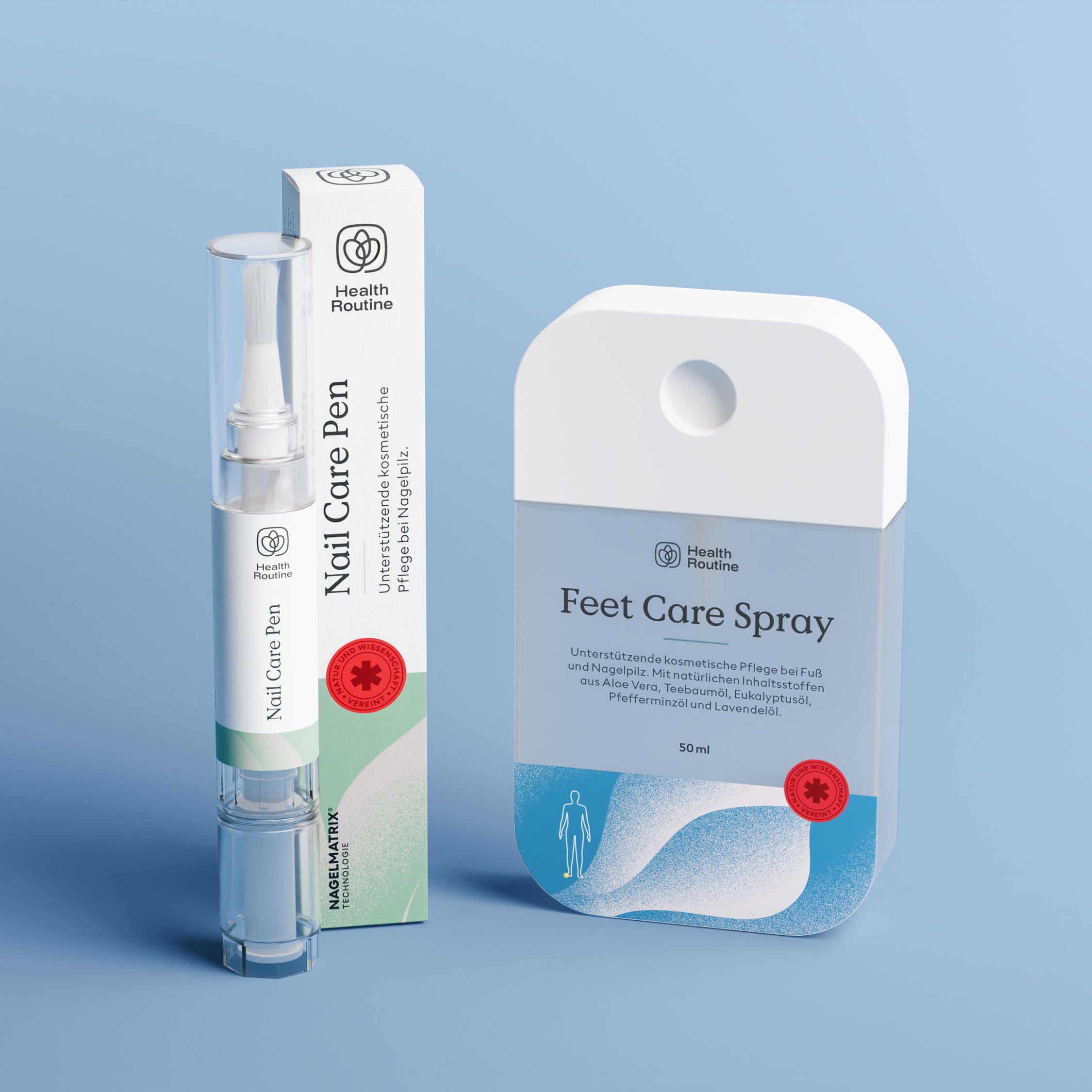The most important things at a glance:
-
Find out how so-called crumb nails manifest themselves and what possible causes can be found.
-
Learn about the different manifestations of nail psoriasis – from nail bed changes to nail matrix changes.
-
Discover supportive care steps for everyday life – without promises of medical healing.
What are crumb nails?
Crumbly nails are specific nail changes that often occur in association with nail psoriasis . This type of nail change can affect both fingernails and toenails.
Symptoms range from thickening to crumbling to yellow discoloration . It's important to distinguish between a simple crumbly nail and nail psoriasis, as the underlying causes and treatment can vary.
You should know these two forms of nail psoriasis!
To better understand nail psoriasis , it is helpful to know its two main forms .
Everything about nail bed psoriasis at a glance
Nail bed psoriasis is a form of nail psoriasis in which the changes primarily affect the nail bed . This can lead to nail discoloration — yellow toenails or fingernails.
These yellow discolorations are a clear sign of nail bed psoriasis . They are caused by excess cells accumulating beneath the nail plate and becoming visible through the nail surface as yellow patches.
Everything about nail matrix psoriasis at a glance
The nail matrix , also called the nail root , is the area where the nail grows. In nail matrix psoriasis, this area is affected by inflammatory processes .
This can lead to the nail matrix being damaged or, in severe cases, even destroyed.
A damaged nail matrix can change the shape and structure of the growing nail , while a destroyed nail root can stop nail growth completely.
It is important to recognize these symptoms early and treat them accordingly.
Nail psoriasis: Other symptoms and accompanying manifestations
In addition to the symptoms already described , nail psoriasis can cause further nail changes that can be felt both visually and haptically.
Detachment of the nail plate
A common symptom of nail psoriasis is onycholysis , which causes nail detachment . The nail plate separates from the nail bed , which can be not only visually distressing but also painful.
This process can occur suddenly or gradually and should definitely be treated .
Scaly mass under the nail plate
Have you ever noticed strange skin under your nail? With nail psoriasis, a kind of skin or scale can form directly under the fingernail .
This skin under the fingernail is often a sign that the disease is spreading further and penetrating deeper into the nail structure.
Patchy white coloration
Another symptom of nail psoriasis is patchy white discoloration of the nail . These patches can vary in size and spread across the entire nail , resulting in an irregular appearance.
Longitudinal blood leakage
Sometimes, longitudinal bleeding may also be visible under the nail. These are caused by small hemorrhages in the nail bed and can vary in intensity depending on the severity.
What is the difference between crumb nails and dot nails?
While crumbly nails are characterized by their crumbling structure and yellowish discoloration, pitted nails are characterized by small indentations or dimples in the nail plate .
These dimples are usually no larger than a pinhead and are primarily a visual problem.
Treatment options for crumbly nails: What really helps?
External treatment options: External treatment for nail psoriasis includes special ointments and creams applied directly to the affected nail. UV light therapy can also help relieve symptoms.
Internal treatment options: In more severe cases of nail psoriasis, internal treatment by a doctor or dermatologist may be necessary. This involves medications that affect the immune system and thus alleviate symptoms.
The goal is to cure nail psoriasis or at least reduce its symptoms. There are various approaches to nail psoriasis treatment, depending on the severity and individual situation.
10 helpful tips for crumbly nails in everyday life
Crumbled nails can be a real challenge in everyday life. But with the right care tips and a little attention, you can protect and support your nails.
Here are ten tips that can help keep crumbly nails under control and give them the best possible care.
1. Gentle care for beautiful nails thanks to the tea tree oil in the Nail Care Pen
Tea tree oil is the essential oil of the Australian tea tree. It is said to have many positive effects on health and well-being.
- antibacterial,
- antimicrobial,
- fungicide
- and even have antiviral effects.
Tea tree oil has made a name for itself particularly in the fight against psoriasis , a chronic inflammatory skin disease.
The Nail Care Pen from Health Routine is an insider tip for nail fungus and offers supportive cosmetic care for athlete's foot and nail fungus. It contains not only tea tree oil , but also lemon juice and vitamin E , which can promote nail growth and regenerate the nail structure.
Even if you have brittle nails due to psoriasis, you can use the Nail Care Pen to support the healthy growth of your nails. The Nail Care Pen is suitable for daily nail care and contains
- tea tree oil,
- lemon juice
- and vitamin E also moisturizing aloe vera .

Pflegt auch kosmetisch bei Nagelpilzinfektion
Spendet Feuchtigkeit & regeneriert
Schützt & stärkt die Nägel
2. Protection & hygiene with a soothing foot bath salt
A foot bath can not only be relaxing, but also contribute to hygiene and nail care . Soothing foot bath salts can help soothe the skin and strengthen nails .
Want to treat your feet to something special? Health Routine's foot bath salts feature carefully blended, natural ingredients like sea salt, tea tree oil , and eucalyptus oil to give your feet the care and relaxation they deserve.
For a quick refresher in between, the Feet Care Spray from Health Routine is ideal. It's a natural solution for sweat odor and is particularly impressive thanks to its nourishing ingredient, tea tree oil .
3. Nail polish as a protective shield for the nails
A special nail polish can not only provide cosmetic relief for nail psoriasis, but also serve as a protective shield for the nails. It can help protect the nails from external influences and strengthen their structure.
4. Protect your nails with gloves when cleaning
Whether washing dishes or cleaning , harsh cleaning agents can put additional strain on nails. Therefore, always wear gloves to protect your nails and hands .
5. Enjoy a medical manicure & pedicure
A professional manicure and pedicure can work wonders.
- remove dead skin cells,
- care for the cuticles
- and can therefore strengthen the entire nail.
6. In the hands of an expert: advice and help from a dermatologist
If you have persistent problems or concerns, don't hesitate to consult a dermatologist . They can offer you specific advice and treatment options.
7. Gentle care for your nails: Avoid pressure and friction
Avoid constantly biting your nails or rubbing them against hard surfaces . Any additional pressure or friction can further weaken the nail structure.
8. Keep your nails short
Long nails are more likely to break or crack . Therefore, it's best to file your fingernails before they get too long to avoid splitting.
For particularly gentle and effective care, we recommend the microfine glass file from Health Routine . It's not only durable , but also seals the nail and offers additional protection against splinters .
9. Moisturize your hands regularly
A good hand cream can help keep skin supple and nails strong . Apply it regularly, especially after washing your hands.
10. Healthy nails: Patience and consistency pay off
Beautiful nails are the result of patience and consistent care. Don't give up, even if the results aren't immediately visible. With time and proper care, your nails will surely look stronger and healthier.

Attraktive und gepflegte Nägel
Verleiht Nägeln wieder ihren natürlichen Glanz
Schützt & stärkt die Nägel
Risk of confusion: What is the difference to nail fungus?
The symptoms of nail psoriasis can easily be confused with those of nail fungus, as they are similar in many aspects. To clarify, here are some of the most obvious distinguishing features:
Checklist for distinguishing nail psoriasis and nail fungus
✘ Risk of infection: While nail psoriasis is not contagious, nail fungus can be transmitted from person to person.
✘ Characteristic features: Pitted nails are a typical sign of nail psoriasis. This symptom is not found in nail fungus.
✘ Odor: Untreated nail fungus often has an unpleasant, strong odor. In contrast, nail psoriasis is odorless.
✘ Nail structure: Nail psoriasis can cause depressions or dents to form in the nail, while nail fungus often leads to thickening of the nail.
Although these clues provide initial guidance , it is essential to consult a dermatologist if nail psoriasis or nail fungus is suspected .
Only a specialist can make an accurate diagnosis and recommend appropriate treatment. It's advisable not to wait too long and not to hesitate to seek professional help.
Conclusion
The health and appearance of your nails can often provide a direct indication of your overall well-being. Whether it's brittle nails, nail psoriasis, or nail fungus, it's important to recognize your body's signs and act accordingly.
At Health Routine, we are here to help and advise you, because our goal is to make you feel good in your own skin with beautiful and healthy nails.
FAQ
What are the main causes of crumbly nails?
Crumbly nails can be caused by various factors, including genetic predisposition, environmental factors, or certain diseases such as psoriasis. It's important to identify the exact cause to choose the right treatment.
How often should I care for my nails if I have nail psoriasis?
The frequency of nail care depends on the severity of the condition. However, it is advisable to care for your nails regularly and use special products that are helpful in promoting nail health.
Can nail psoriasis be completely cured?
While there is currently no cure for psoriasis, symptoms can be effectively controlled with proper treatment and care. It's important to consult a dermatologist who can develop a personalized treatment plan for you.
Your medical advice
Our products are not intended to diagnose, treat, cure, or prevent any disease. The information provided in this article is for informational purposes only and is not intended as a substitute for advice from your physician or other healthcare professional.
Furthermore, our products are not a substitute for medications or other treatments prescribed by your doctor or healthcare provider. Regardless of the due care taken, no liability or warranty is assumed for the
- Accuracy,
- topicality,
- completeness
- and availability of the information provided.
No legal claims can be made for any damages potentially resulting from the use and application of this information. Liability claims of any kind are excluded.












